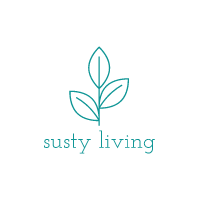By Emanuel Murra
The United Nations 2030 Agenda for Sustainable Development highlights a number of key goals. One of these is quality education which plays a fundamental role in achieving the other goals. Quality education is defined as inclusive, equitable and accessible education for all, capable of providing meaningful and transformative lifelong learning opportunities. The importance of quality education cannot be underestimated, and it must be pursued as a priority for the promotion of sustainable development worldwide.
First and foremost, quality education plays a key role in fostering individual development. It equips individuals with the skills and knowledge necessary to meet the challenges of everyday life, understand the world around them and to realise their full potential. Quality education equips people with practical, critical and creative skills, enabling them to adapt to rapid social and economic change, make informed decisions and participate actively. Quality education is a powerful tool to promote social and economic inclusion.
Through equitable access and equal learning opportunities for all, quality education can help reduce inequalities, combat poverty and promote gender equality. Inclusive education ensures that no one is left behind, regardless of their social, ethnic, economic or other background. It is essential for promoting social cohesion and building fair and inclusive societies. In addition, quality education plays a crucial role in promoting sustainable development. It provides people with the knowledge to understand the environmental, social and economic challenges facing our planet and to act responsibly and sustainably. Quality education can encourage the adoption of sustainable lifestyles by promoting environmental awareness, conservation of natural resources and action to address climate change. It can also prepare people to work in sectors related to sustainable development, such as renewable energy, water resource management and sustainable agriculture.
Finally, quality education plays a key role in promoting peace and active citizenship. By instilling values such as respect, tolerance and intercultural understanding, quality education can contribute to conflict prevention and the building of peaceful societies. It also promotes active citizenship by providing individuals with the necessary tools to understand and address social and political challenges, and to make informed and responsible decisions. Quality education, as defined in the 2030 Agenda, is essential for sustainable development. Through inclusive, equitable and accessible education, individuals can acquire the skills necessary for their individual development, promote social and economic inclusion, advance sustainable development and build peaceful and inclusive societies.
Investing in quality education is an investment in the future of individuals and our planet. To address the issues mentioned above, we created an international consortium of partners who are now implementing an Erasmus+ KA2 project in the field of adult education – Adult Education for Sustainable Living, coordinated by Fundacja Autokreacja (Poland) in partnership with Demostene (Italy) and Fifty-Fifty (Greece). Thanks to the activities developed within the project, adults and educators will be provided with the necessary tools – educational package and online course – to understand how quality education also relates to age groups that are now out of the usual school cycles. The approach adopted is very pragmatic and practical, focusing on the positive aspects of so-called lifelong learning. Being a conscious adult means improving one’s own life and having a positive impact on society.
